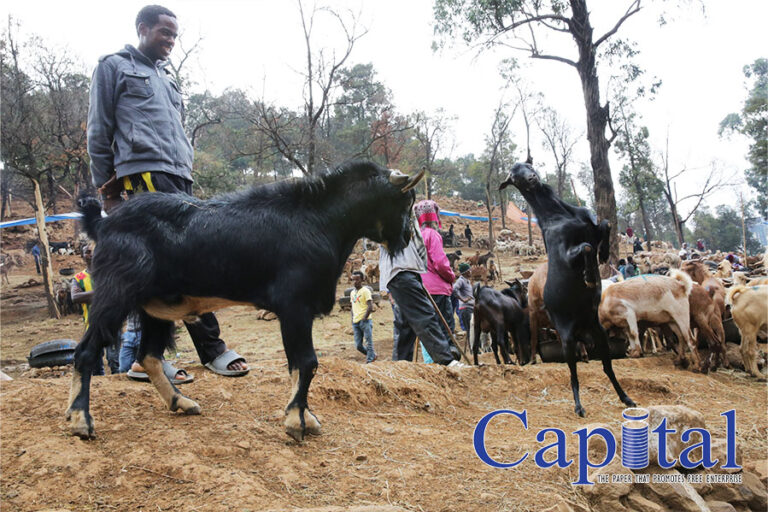HAPPY NEW YEAR FROM RWANDA WITH LOVE
Writing from Rwanda, in the clean green capital of Kigali, the land of way over one thousand hills, country of 13 million citizens…it is safe to say Ethiopia has a distant peaceful neighbor providing an example for the way forward. It is quite surreal to think that twenty-eight years ago this incredible nation suffered through one hundred days of an unimaginable genocide. In 2016 Kigali kicked of its Car Free Day encouraging residents to walk, jog, skate and ride bikes, unencumbered by traffic throughout the tree lined city. However, after walking 5K with the fifty-plus year old PrimaMed Technologies Managing Director, Martin Manzi and sons Lionel and Lior (too young to have experienced the scourge), it appeared the serene Sundays are also devoted to fostering social cohesion and public harmony. It is about continued healing, growth and development from and for the people. By the way did I mention we met the President, First Lady and partial cabinet on the walk?
The African Diaspora is also finding refuge in Rwanda with people and projects popping up in the arts, health and entrepreneurism, to name a few of sectors. Seestah IMAHKÜS, known worldwide as Mama One Africa, whose ancestors were ripped away to America in the transatlantic slave trade, repatriated to Ghana in the 1990’s but has resided in Rwanda since 2019. The 81 year strong great-grandmother receives encouraging applause from passersby during for her weekly walks on the steep hills. In CNN Anderson Copper’s 2010 interview with Mama One Africa during President Barak Obama’s visit to the Cape Coast slave dungeons, reported, “…every time IMAHKÜS visits, she prays for the souls of those who died here and those who passed through (the dungeons) … it’s a painful pilgrimage but one that gives her strength…”. As she tries to heal centuries of pain, seemingly set in her very blood and bones, the people of Rwanda have given her a new perspective on healing through reconciliation. “Faces of Forgiveness” is her heartfelt project for survivors and their children. She quotes one of the participants who moved her to tears, “In order to move forward we have to forgive.” Her pilot program is focused on the textiles industry through building skills and capacity for economic empowerment.
The iDiaspora health initiative is also one to watch. UN International Organization for Migration in collaboration with the Ministry of Health led by Minister Dr. Daniel Ngamije states the “Diaspora Engagement in Health Sector Project…is identify(ing) and support(ing) qualified Rwandan medical professionals, residing in Europe who wish to … transfer their skills, knowledge, and technology to Rwanda’s health sector.” Gradian Health Systems, a non-profit medical tech company, is also adding to the effort through the provision of “…new anesthesia and oxygen therapy innovations developed based on the feedback of doctors across the continent,” according to Gradian CEO Lina Sayed. Gradian’s thirty plus energetic visionary, has earned the trust of the Rwanda health community who are beneficiaries of medical equipment, extensive bio-medical engineer training and a simulation lab at the University of Rwanda. “We have seen exceptional leadership on the African continent, especially during the last 2+ years of an ongoing global pandemic. We know that our greatest strength is the healthcare providers who have worked endlessly to provide high-quality care to patients.” The DC based Diaspora African Forum Foundation is helping to place Gradian on Ethiopia’s radar. Head of Mission Ambassador Ereika Bennett says, “DAF is committed to brain gain, reversing brain drain.” The University of Global Health Equity Rwanda (UGHE) also share Ethiopia’s vision. Dr. Abebe Bekele who heads Black Lion Hospital, serves as UGHE Deputy Vice Chancellor of Academic and Research Affaires, Dean of the School of Medicine and Professor of Surgery. This affiliation will benefit the road to recovery for Ethiopia in 2015. Dr. Abebe is an essential advisor the Ministry of Health, led by the dynamic forty plus Dr. Lia Tadesse GebreMedhin.
Finally, I couldn’t close without culture. The music, dance and fledgling fine art scene are simply incredible. Artist, Ishimwe Innocent’s paintings speak to the spirit and hope of the people with black silhouettes set against colorful wispy fresh strokes. But it was the internationally known gorillas of the Volcano National Park, an integral part of the culture and tourism sector, that were center stage. Twenty baby gorillas were named by famous folks worldwide including Senegal’s singer and former Minister of Culture, the great Yousou N’ Dor who graced the stage in a special gala hosted by Pan African President Paul Kagame. Amazing Kenya’s Sauti Sol and Rwandan phenomenon Ruti Joel also gave the audience a night to remember that made even the prolific Pres and First Lady Mrs. Jeanette Kagame take to the dance floor. All I could think of as I enjoyed every moment in Rwanda was how Ethiopia will continue to pray for peace, fight for justice and dance in celebration when our country has reconciled, healed and will reap the fruits of all the Ethiopians who have sacrificed life, limb and livelihood for a safe, clean, green and prosperous Ethiopia which WILL be a reality soon and very soon.
Dr. Desta Meghoo is a Jamaican born Creative Consultant, Curator and cultural promoter based in Ethiopia since 2005. She also serves as Liaison to the AU for the Ghana based, Diaspora African Forum.
UN humanitarian chief warns that famine is at the door in Somalia, calls for immediate action
UN humanitarian chief Martin Griffiths visited Baidoa in Bay region, the epicenter of the hunger crisis ripping through Somalia, and Banadir hospital in Mogadishu. Despite the immense suffering he witnessed, he fears that “the worst is yet to come” for the people of Somalia.
As the drought worsens, 7.8 million people nearly half of the country’s estimated population need humanitarian assistance. Hundreds of thousands of people are at imminent risk of death if we do not act immediately. The latest Somalia Food Security and Nutrition analysis report, being released today, shows concrete indications that famine will occur in two areas in the Bay region (Baidoa and Burhakaba districts) in south-central Somalia between October and December of this year.
“Famine is at the door, and today we are receiving a final warning,” Griffiths said. “But panic doesn’t help those who need and deserve our help. It is not a strategy. Providing more humanitarian assistance is. Somalia knows, tragically, about famine, Somalis know about crises of hunger. In 2016 and 2017, the people of Somalia and their Government, helped by humanitarian agencies, held back and prevented a famine and we must hope that we will see this again now.”
Donation of intensive implant course in Ethiopia
A South Korean firm, Osstem Implant in collaboration with KOTRA, MCM Comprehensive Specialized Hospital and Dentos has started a donation of a free Intensive Implant Course for the Ethiopian dentists which lasted on Friday September 09. The main purpose of this donation was to provide the necessary knowledge and clinical skills to incorporate implant dentistry in the country.
According to Dr. Youngdai Song, (lecturer) who has worked in this field for many years, this training will be a good opportunity for many doctors. He added that this training will focus not only on education but also on technology transfer.
This training is been given to dentists from various government hospitals and private clinics and is being given using the basis of various methods to demonstrate the progress in dental implants. This 4 consecutive days of free training will help the participants gain knowledge and apply what they have learned in their daily work. This is an excellent opportunity for general dentists and dentists who wish to improve their current dental skills to pursue oral implant therapy.





